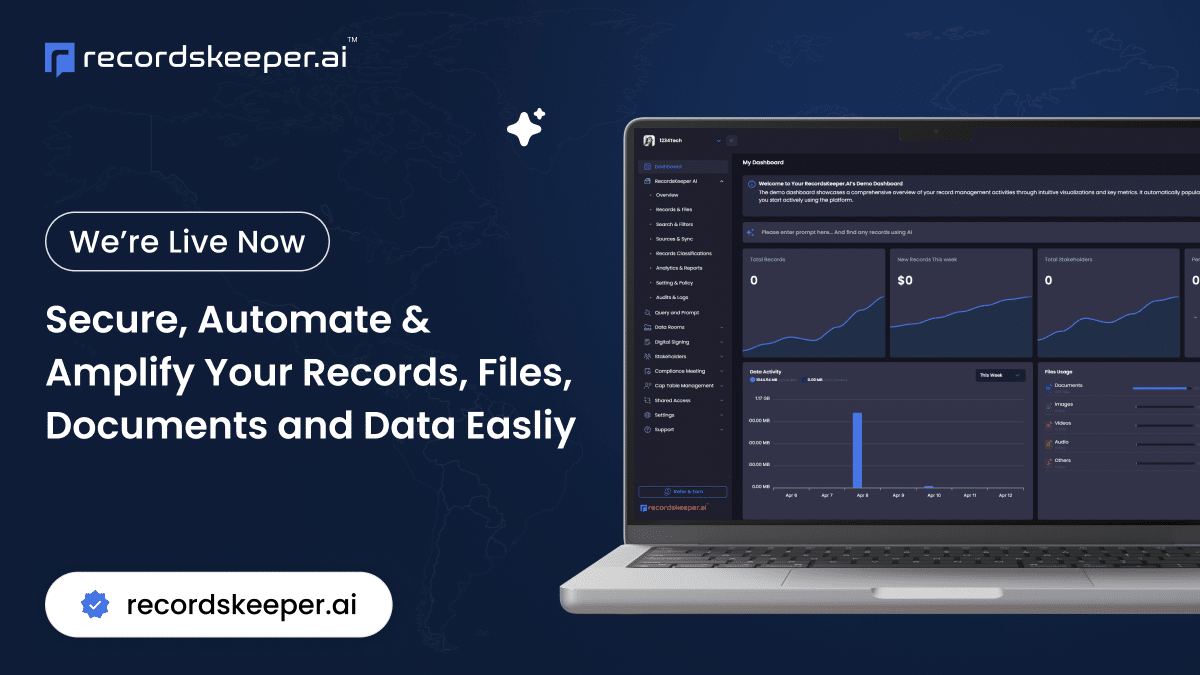Revolutionizing Healthcare: The Role of Google AI in Medical Records
As someone deeply entrenched in the world of AI and records management, I find the advancements in AI technology, particularly in healthcare, nothing short of revolutionary. Google AI is at the forefront of this transformation, reshaping how we approach medical records and patient data analysis. It’s not just a technological upgrade; it’s a paradigm shift ensuring patient safety, enhancing precision in diagnosis, and streamlining healthcare operations. In this article, I’ll delve into how Google AI is reinventing healthcare by optimizing medical record management.
The Evolution of Medical Records with AI
Traditionally, medical records have been managed manually, resulting in errors, inefficiencies, and data breaches. However, the integration of AI into medical data management brings forward a robust and reliable system. Google AI in healthcare uses sophisticated algorithms to automate data entry, error-check, and even predict patient outcomes based on historical data. This level of precision was unimaginable a few decades ago.
Automated Data Handling: One of the distinct features of Google AI in medical data is its automated data handling capacity. The system can transcribe voice notes, categorize diagnoses accurately, and update patient records in real-time. This not only saves time but also minimizes human error, ensuring accuracy in patient records.
Enhancing Diagnostic Precision and Patient Care
Google AI doesn’t stop at records management; it plays a crucial role in diagnostic processes. By leveraging vast data sets, the AI can assist in diagnosing diseases at an early stage. For instance, Google’s DeepMind Health has demonstrated potential in accurately diagnosing complex eye diseases using AI algorithms. The implications? Quicker diagnoses lead to faster treatments and, ultimately, improved patient outcomes.
Advanced Predictive Analytics: Through machine learning, AI can analyze patterns in patient history to suggest preventive measures. This forward-thinking approach allows healthcare providers to create personalized care plans, which can significantly mitigate the risk of common ailments.
Challenges and Ethical Considerations
While the implementation of Google AI in medical data is revolutionary, it is not without challenges. Data privacy and ethical considerations are paramount. The handling of sensitive patient data requires stringent measures to protect against breaches and misuse. Google, in its endeavors, ensures compliance with global data protection regulations like GDPR.
Maintaining Data Integrity: Blockchain technology is a noteworthy solution addressing these concerns, providing a tamper-proof method of data storage and access control. By integrating blockchain, healthcare providers can ensure that patient data remains secure and unaltered.
The Future of Healthcare with Google AI
The potential for AI in healthcare is vast. As Google AI continues to evolve, the next frontier is a seamless integration across all facets of healthcare, from administration to patient interaction. The advent of AI-driven personal healthcare assistants could provide real-time guidance, making healthcare more accessible and user-friendly.
Investing in AI Education: As we look ahead, educating healthcare professionals about AI technologies is critical. Understanding AI’s roles and capabilities will enable smoother transitions and better adoption within medical institutions.
Conclusion: Embrace the AI Transformation
In conclusion, Google AI’s foray into healthcare is a game-changer. By optimizing how we manage medical records and analyze data, AI stands to redefine patient care, making it more proactive, personalized, and precise. As AI technology matures, its role in the healthcare sector will only expand, presenting us with newer opportunities to improve patient outcomes while maintaining the highest standards of data security.
I encourage you to embrace this AI transformation in healthcare. Stay informed, explore new technologies, and consider how AI can enhance the capabilities of your healthcare facility. For more insights into how AI can innovate your record management processes, follow along as I share my journey in the world of AI and records management.








